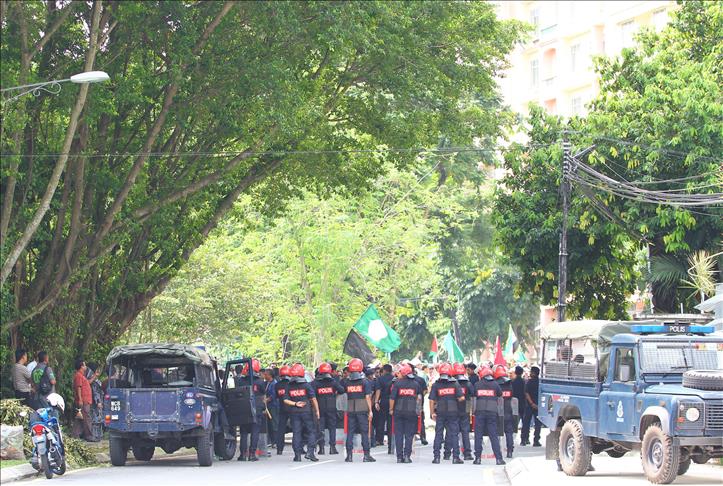
By Chan Kok Leong
KUALA LUMPUR
Human Rights Watch is calling on Malaysia to institute an external oversight system to end cover-ups, excessive secrecy and obstruction of investigations into abuses by its police force.
Phil Robertson, HRW’s deputy director for Asia operations, told reporters at a press conference in Kuala Lumpur on Wednesday that Malaysian police officers are not accountable to anyone but themselves, and ordinary people across the country too often pay the price with "broken bodies and tragically shortened lives.”
“The Malaysian government needs to put in place effective oversight of the police to end the wrongful deaths, preventable abuse in custody, and excessive use of force on the streets,” said Robertson, after launching a 102-page report into what he termed "a major problem."
“No Answers, No Apology: Police Abuses and Accountability in Malaysia” probes cases of alleged police abuses in Malaysia since 2009, drawing on first-hand interviews and complaints by victims and families.
HRW outlined the hypocrisy of the situation, saying that the very people investigating the alleged abuses were the very organizations suspected of committing them.
The situation lacks transparency, the report said. "The officers implicated in the abuses were almost never prosecuted."
According to HRW, the government’s unwillingness to ensure police work with oversight bodies, such as the Malaysian Human Rights Commission (Suhakam) and the Enforcement Agency Integrity Commission (EAIC), or to establish an independent police watchdog as recommended by a Malaysian Royal Commission of Inquiry in 2005, has worsened the problem.
In an interview with HRW, Inspector General of Police Khalid Abu Bakar (then Deputy Inspector General) said that police could use lethal force for “self protection… if police are threatened with death [and] there is no time to use a less lethal weapon.”
But HRW’s investigations found instances of fatal shootings by the police in situations where they had ascertained that a suspect had a machete or posed a menace during a car chase, or while avoiding a roadblock.
Ensuing investigations are more often than not then carried out by colleagues of the police officer involved in the alleged infringement, the report said.
Suhakam and the EAIC have said that they had little success gaining access to police case files, or police standard operating procedures on the use of force and firearms and other information, according to the report.
In its investigation into alleged abuses that took place during 2012’s Bersih 3.0 rallies in Kuala Lumpur, Suhakam complained that the police failed to cooperate in identifying police personnel who used excessive force including beating protesters and journalists.
During the Bersih 3.0 demonstrations, at least 25,000 demonstrators swamped the city, hoping to pressure the government into overhauling electoral policies. Police unleashed tear gas and chemical-laced water and dozens of people were detained. Officials said that 20 police officers and three demonstrators were injured.
HRW interviewed 75 people in Malaysia for its report, including victims of police abuses and their family members, lawyers, police officials, public prosecutors and members of government commissions.
The full report can be downloaded from http://hrw.org/node/124289
englishnews@aa.com.tr


